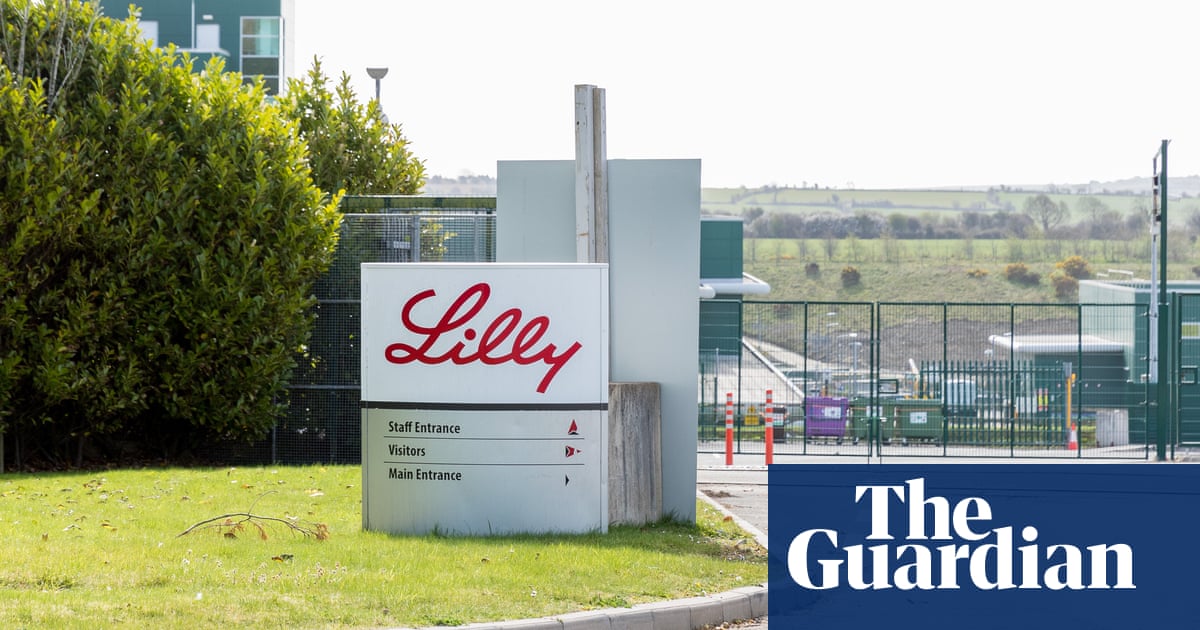Donald Trump has hinted at a tariff reprieve for pharmaceutical companies, which are braced for fresh sector-specific import taxes as early as next week.
He reiterated at a meeting of pharma, tech and industry bosses in the White House that if companies moved their operations to plants in the US they would face no tariffs, but he suggested that they would get “a lot of time” to make the switch before facing levies.
Drugmakers have been bracing for targeted border taxes – similar to the 25% levies imposed on steel, aluminium and car imports – as soon as this coming Tuesday. That date is 21 days afterthe US president announced an investigationinto the sector, seen as the first step before a tariff announcement.
However, in a rambling, carrot-and-stick speech on Wednesday evening, he suggested that he would give companies such as Johnson & Johnson the time they needed to repatriate some manufacturing with new or expanded operations in the US before they would face a “tariff wall”.
Trump’s comments at the meeting on Wednesday suggest that the pharma industry could be the latest to benefit from him pausing or diluting his tariffs in the face of huge opposition to the chaos they are causing the business world.
He paused his “reciprocal” tariffs for 90 days after they prompted a sell-off in US government bonds, and on Tuesdayhe watered downhis automotive import restrictions, curbing some duties on foreign cars and parts. But he has repeatedly threatened to carry through with sectoral tariffs on pharma.
At Wednesday’s “invest in America” televised meeting, designed to deflect from figures showing theUS economy shrankin the first three months of this year, Trump claimed that businesses had pledged up to $8tn (£6tn) investment in the US since he was elected last November in the hope of evading tariffs, with $171bn of that coming from pharma companies, including US companies in Ireland exporting to US patients.
“Businesses here [represented at the White House meeting] understand that if you build your factory in the United States your tariff rate is zero, zero,” he said.
Sign up toBusiness Today
Get set for the working day – we'll point you to all the business news and analysis you need every morning
after newsletter promotion
Turning to pharma bosses, he claimed: “We are going to be getting tremendous amounts of drug and pharmaceutical companies going to be pouring into the country … We’re going to give them a lot of time to do it.
“But after that, it’s going to be a tariff wall put up, and they won’t be happy about it, but they’ll be happy if they start building right now, right now, it’s going to be build, and after a certain period of time, it’s going to get tougher, tougher, tougher, and then it’s going to be real hard to do business in this country.”
Trump ribbed the Eli Lilly boss, David Ricks, for trying to persuade him that drug prices were down to the middleman, but said the company was investing $27bn while the Swiss giant Novartis had pledged $23bn and Genentech $50bn.
He claimed that Johnson & Johnson had put $55bn into manufacturing and R&D in the US. “That’s a lot,” he said to the drugmaker’s chair and CEO, Joaquin Duato, “but you got to catch up with Apple and so many others.” The tech company haspledged to invest $500bnin the US over the next four years.
Thermo Fisher and Merck, who also have large operations in Ireland – which Trump has previously singled out forstealing the “entire” US pharma industry– have pledged $2bn and $9bn, he said.
Trump also hinted at some sort of a reprieve or pause on punitive tariffs on semiconductors, citing investment pledges from Korea’s Samsung and the US company Nvidia, which has manufacturing plants in Europe. “If you make your chips in the US, tariffs will be all the way down to 15%,” he said.
